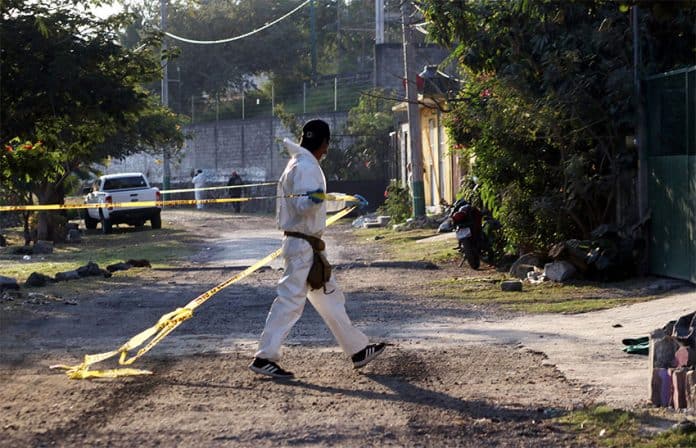Mexico’s National Autonomous University (UNAM) has approved the creation of the country’s first school of forensic science, stating that it will be a leader in advancing the field in Mexico and contribute to the delivery of justice with more robust scientific evidence.
In a statement, the UNAM explained that the National School of Forensic Sciences (ENaCiF) would strengthen the identity of its existing bachelor’s degree in forensic sciences, currently run by the Faculty of Medicine, and provide more pathways for students to enter the field.
The existing undergraduate program is currently on its seventh generation of students, of whom 92 have already graduated. They have gone on to work for a wide range of bodies in the fields of justice and human rights, including the National Commission for Missing People, the Executive Commission for Attention to Victims and the Attorney General’s Office, among others.
Alongside transferring this undergraduate program to the ENaCiF, the UNAM outlined a nine-year plan to strengthen the teaching of forensic science. This will start by doubling enrollment on the Bachelor of Forensic Sciences program and launching a job placement program to help graduates enter the field. It will also create a postgraduate program to certify forensic professionals, with a variety of remote and hybrid learning options to give greater flexibility.
Over the long term, the new school will allow students to specialize in one of three career paths. These are yet to be defined, but could include Human Identification, Public Security and Criminal Policy, and Forensic Audit. The ENaCiF will also promote collaboration with social, legal, scientific and political institutions around the country, fostering a multidisciplinary approach to forensic investigations.
In its statement, the UNAM emphasized that forensic science has become indispensable to the administration of justice and assured that the ENaCiF would help meet the growth in demand for forensic investigation professionals in Mexico.
A year ago, the federal government admitted that Mexico faced a “forensic crisis,” with an estimated 52,000 unidentified bodies in common graves and morgues and more than 95,000 missing people. The authorities’ lack of capacity to investigate the epidemic of deaths and disappearances related to organized crime has meant much of the burden falls on victims’ families, search groups and non-governmental organizations.
A report by Fundar, released last week, found that a lack of budget transparency and funding for forensic activities, particularly at state level, is a leading factor behind the forensic crisis in Mexico. However, it also highlighted a lack of trained of personnel — an issue that the UNAM’s new education program will seek to address.
With reports from Reporte Indigo and Publimetro
